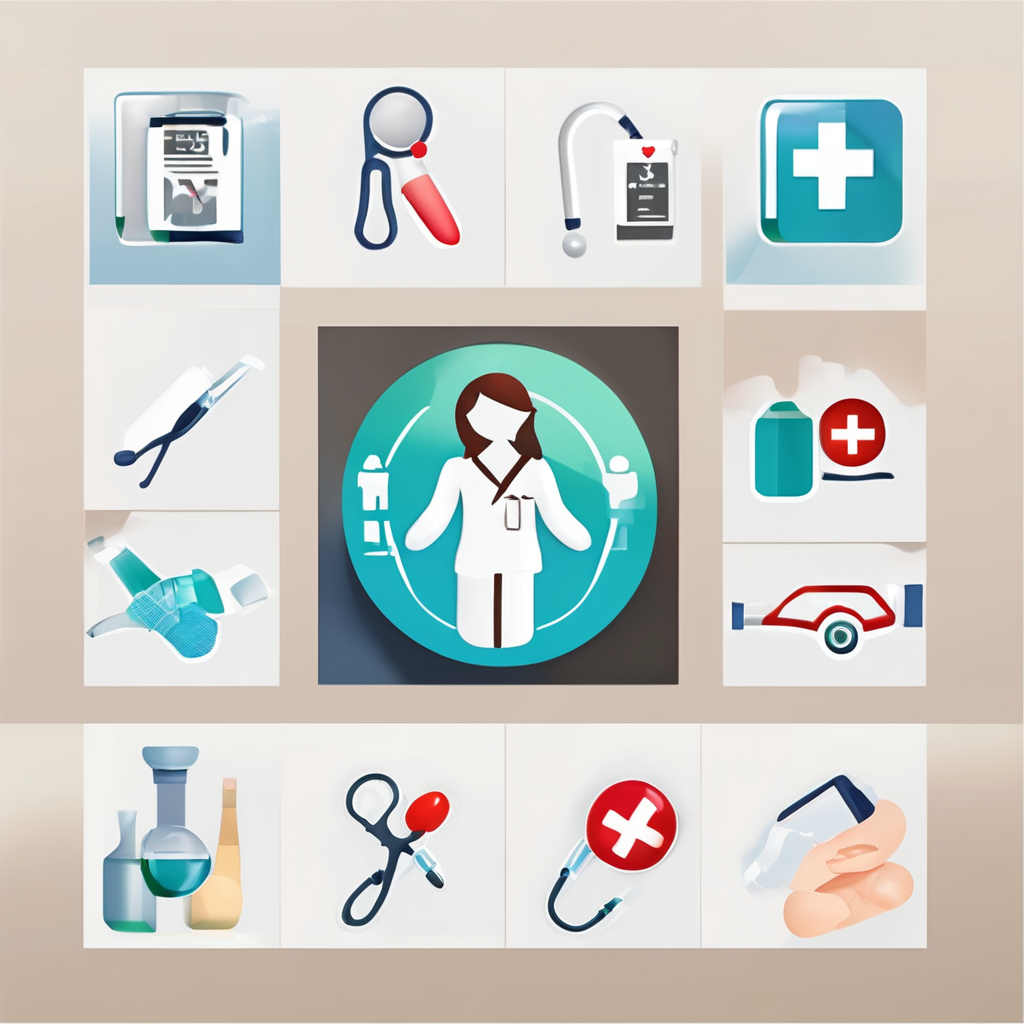Pregnancy is a profound journey that transforms a woman’s life, body, and mind. Throughout this exciting phase, many myths circulate, often leading to confusion and misinformation. From dietary concerns to misconceptions about health risks, these myths can affect not only expectant mothers but also their families and communities. It is crucial to separate fact from fiction to ensure a safe and healthy pregnancy experience. In this article, we will explore common myths about pregnancy, share facts that debunk these misconceptions, and provide you with the knowledge needed to navigate this incredible journey.
Understanding Common Myths About Pregnancy
Pregnancy is often shrouded in myths that can mislead and create unnecessary worries. Understanding these myths is essential for the health of both the mother and the baby. One of the most prevalent myths is that pregnant women should eat for two. While nutrition is vital during pregnancy, the idea that calorie intake should double is misleading. Instead, women are encouraged to focus on nutrient-dense foods and to increase their caloric intake by only about 300 calories a day in the second and third trimesters.
Also to discover : How does smoking or alcohol use during pregnancy affect the developing fetus?
Another common myth is that a pregnant woman’s body will go through drastic changes overnight. While some changes are rapid, many physical transformations occur gradually. For instance, weight gain does not usually happen suddenly; it is a slow process that varies from person to person. Emphasizing gradual changes helps pregnant women understand that each body adjusts uniquely.
There’s also a misconception surrounding sex during pregnancy. Many believe that sexual activity is strictly off-limits. In reality, unless there are specific medical concerns, sexual intimacy can be a normal and healthy part of pregnancy. Communication with healthcare providers is essential to address concerns and clarify any risks.
This might interest you : How can expecting parents prepare financially for the arrival of their newborn?
These examples illustrate how misinformation can stem from well-meaning advice or societal beliefs. It’s crucial to rely on medical guidance and up-to-date research to navigate your pregnancy effectively. Understanding and dispelling these myths can enhance your experience and promote a healthier pregnancy.
Myths Surrounding Pregnancy Health Risks
Health is a primary concern for women during pregnancy, yet numerous myths can lead to unnecessary fear. One such myth suggests that a woman’s health condition—be it a chronic illness or a newly developed issue—will always endanger the baby. While certain conditions require careful management, it does not mean that pregnancy is off the table. Many women with conditions like diabetes or hypertension successfully navigate pregnancy with proper medical care and monitoring.
Another concern involves the myth that stress can directly harm the baby. While extreme stress and poor mental health can potentially affect pregnancy outcomes, moderate stress is a normal part of life and pregnancy. Managing stress through relaxation techniques and support systems is essential. Expectant mothers should feel empowered to seek help and not feel guilty about their stress levels.
Some women worry that they must avoid all forms of exercise to protect their baby. This belief can lead to a sedentary lifestyle, which is not beneficial for either mother or baby. In truth, regular, moderate exercise can improve pregnancy outcomes, enhance fertility, and support overall well-being. Activities like walking, swimming, or prenatal yoga can be excellent ways to stay active and healthy.
As you navigate your pregnancy, it is vital to question the source of your information. Reliable sources include healthcare providers and reputable organizations dedicated to maternal health. By focusing on accurate information, you can mitigate health risks and ensure a healthier pregnancy journey.
Nutrition Myths During Pregnancy
Proper nutrition during pregnancy is a topic filled with myths that can confuse women. One widespread myth is that pregnant women cannot consume seafood. While it’s true that certain types of fish contain high levels of mercury and should be avoided, many seafood options are rich in omega-3 fatty acids, which are beneficial for the baby’s development. It’s essential to consult with your healthcare provider about safe seafood options to incorporate into your diet.
Another common myth is that pregnant women need to eliminate all caffeine from their diets. While excessive caffeine intake can pose risks, moderate consumption—around 200 mg per day, equating to one 12-ounce cup of coffee—is generally considered safe. Women should monitor their caffeine sources, including tea and chocolate, to stay within recommended limits.
Additionally, the belief that all dairy products are harmful during pregnancy is misleading. Dairy provides important nutrients such as calcium and protein. Women should aim to consume pasteurized dairy products to avoid the risk of foodborne illness while reaping the nutritional benefits.
As you navigate dietary choices during pregnancy, focus on a balanced approach that includes a variety of foods. Consulting with a registered dietitian can provide personalized guidance tailored to your needs and preferences. Understanding the facts about nutrition will empower you to make choices that support your health and the health of your baby.
Fertility Myths and Their Impact
When discussing pregnancy, it’s also vital to address the myths surrounding fertility and conception. Many women believe that age is the only factor affecting fertility. While age plays a significant role, other factors such as overall health, lifestyle, and medical history also contribute to fertility. For instance, conditions like polycystic ovary syndrome (PCOS) can affect fertility at any age. Understanding these factors can empower women to seek help sooner if they encounter difficulties conceiving.
Another prevalent myth is that women should avoid all forms of contraceptive methods if they wish to conceive. Some believe that the moment they stop using contraceptives, they will become pregnant immediately. In reality, it can take time for the body to adjust after discontinuing birth control methods, especially hormonal options. Patience is essential, and consulting a healthcare provider can help set realistic expectations.
Furthermore, many women think that being overweight or underweight will immediately affect their chances of getting pregnant. While weight can influence fertility, many women overcome these challenges through lifestyle changes and support. It’s crucial to recognize that each woman’s body is different, and success in conception can come in various forms.
Discerning the facts about fertility can alleviate anxiety and guide women toward informed decisions about their reproductive health. Seek professional advice when exploring fertility options, as they can provide personalized support based on your unique circumstances.
The Importance of Reliable Information in Pregnancy
In the age of information, reliable resources are more essential than ever, especially for pregnant women. Misinformation can spread quickly through social media, family, and friends, often leading to confusion and unnecessary distress. It is crucial to verify the information you encounter and to rely on credible sources.
Healthcare providers are primary resources for accurate medical advice during pregnancy. They can address individual concerns, provide evidence-based guidance, and help you understand the risks and benefits of various choices during this time. Do not hesitate to ask questions during your appointments; open communication with your provider is vital for a healthy pregnancy.
Moreover, reputable organizations like the American Pregnancy Association or the World Health Organization offer research-backed information about pregnancy, birth, and maternal care. They can help you navigate complex topics and dispel myths that may arise from less credible sources.
In conclusion, seeking reliable information empowers you as a pregnant woman. It allows you to make informed decisions, fosters a supportive environment for you and your baby, and ultimately enhances your pregnancy experience. Prioritize your health by cultivating a network of trustworthy resources and professionals who can guide you through this extraordinary journey.
Navigating the world of pregnancy can be overwhelming, especially with the abundance of myths and misinformation that exist. By understanding and debunking these common myths, you can foster a healthier, informed, and more enjoyable pregnancy experience. Focus on gathering reliable information from trusted sources, prioritize open communication with healthcare providers, and surround yourself with supportive networks. As you embark on this remarkable journey, equip yourself with knowledge, embrace the changes, and cherish the moments ahead.











